#street wall
Explore tagged Tumblr posts
Text
Margot Robbie
13K notes
·
View notes
Text


#american airlines#capitalism#democrats#republicans#politics#corporate/industrial news#the simpsons#lol#twitter#wall street
24K notes
·
View notes
Text

hero by night, shady consultant by day
#me just making up canon at this point#i think he could make it on wall street#my art#batman#batfam#batfamily#batman comics#batfam fanart#batfamily fanart#dc#dcu#dc fanart#tim drake#tim drake fanart#red robin#red robin fanart#kon el kent#conner kent#conner kent fanart#superboy fanart
1K notes
·
View notes
Text
More of Stanley's sketchbook because he makes me sick /pos
(Just imagine he was looking in a mirror at the subway to draw this anshfhwj. The london bus ticket is unrelated, it's just a random knick knack he had lying around<3)

People weren't the only ones Stan met on the streets.



------
+ this is an absolute fucking batshit WILD oneshot I initially wrote for these drawings that got WAY out of hand, if you feel like reading that.

The oneshot below is a stand-alone now, and in no way is related to the drawings above, but I just wanted to show you guys because Jesus Christ
------
Winter of 1981, at a subway station Stan doesn't remember the name of-
The sorry excuse of a transport system that this hellhole of a city called a functioning subway was hardly anyone's first choice of a warm place to stay the night. And yet, here Stanley was; standing like an idiot in the middle of a small bustling stairwell that led down to the full screeching chaos of a train stop on a Tuesday evening. A rowdy crowd of exhausted office workers streamed out like a tidal wave from the entrance of the station, the bustle of their footsteps all too eager to go home and relax after a long day of work.
The faint, stuffy stench of old piss and sweat followed the crowd to the surface from the deep depths of a less than sanitary and overcrowded train station. The pungent smell intermingled with the crisp stinging winter air in a cocktail of shitty city gloom often associated with this time of the year; when the holidays were too far away and the sun seemed to come and go with practically the same 9 to 5 schedule as the workers had, leaving them going to work in the pitch dark and coming back out in the inky black as well.
He might have looked like he belonged there, depending on how one would want to look at it. He stuck out like a sore thumb amongst the sea of prim, pressed suits and neart uniforms. His ratty old jacket and generally unwashed appearance certainly didn’t help his case, but he also knew that stations like these also tended to shelter quite a number of homeless wanderers like him, especially during the winter. So, it wasn't exactly uncommon to see other sore thumbs seeking reprieve from the biting cold and the dangerous likelihood of frostbite from within the enclosed walls of the subway station.
Heck, if most of these underground kingdoms didn't also happen to be a breeding ground for several illicit activities, he might even have followed their lead. But, believe it or not, Stanley's already had enough experience with illegal activities to last him a last time, and he isn't looking for a new fill. He was satisfied with what meager shelter his trusty car offered him, as little a difference it might make in terms of safety.
Stanley's obstruction of the already narrow stairs with his loitering went unappreciated, as shoulders roughly shoved past him and swinging briefcases repeatedly bumped into his sides, usually coupled with a nasty glare and a snide comment or two. He paid them no mind, however. He wasn't here to start a fight with some random bum with a dead end job, as much as he thought it would probably do them both some good to duke their stresses out on one another.
The hours ticked by with wave after wave of new crowds being dropped off by a train and left to pour out of the station into the streets. By the time the streetlights turned on and the pale pink in the sky slowly faded to make way for the stark glittery black of the night sky, the tide of people had slowed to a trickle and rush hour was long since over. He was now the stairs’ sole occupier, with a few occasional stragglers stumbling up the steps and hurrying past him without a second glance.
Stanley did not move from his spot, however. He stood resolutely in the middle of the stairway, fervently rubbing his arms and stamping his feet in a futile attempt to try and regain feeling in his extremities as he waited. Rocking on his heels, he titled his head backwards to let his eyes roam the constellations that carpeted the endless expanse of the sky stretched out above his head, almost losing himself in the scintillating canvas of stars.
It reminded him of old times; of the sparkling beach sand twinkling in the dim moonlight, and the soft sound of lilting waves hovering in the background as he lay back on the cold wooden deck of his ship and watched the stars dance.
He still remembered every name his brother had once recited to him time and time again as he pointed out each star and galaxy from the night sky.
Then, like clockwork, he was broken out of his reveries by a telltale meow coming from below. The sound was a familiar blanket that immediately melted away the tension that had begun to build in his chest as he practically sagged with relief.
His body moved almost automatically as he leaned down to detach the frail tabby cat that was attempting to literally fuse with his legs, purring up a storm and rubbing her head against his pants as though her life depended on it. The cat gave a soft chirrup of dissatisfaction at being manhandled, which Stanley absentmindedly replied with a chiding click of his tongue as he lifted her up his chest and gently tucked her into his jacket in a practiced motion.
She thankfully remained blissfully limp in his grasp as he shifted around some more so that she was nestled comfortably inside the dark pocket of warmth inside his ratty jacket. The tiny warm lump that rumbled contently against his front radiated with heat, and his fingers finally began to feel like actual fingers rather than useless stiff frigid lumps of meat and bone attached to his palms.
A pointed cough startled him from his clumsy wriggling to get the cat to settle down. An oddly familiar security guard stood at the entrance of the station at the bottom of the stairs, leveling Stanley an unimpressed look with the metal gate in his grip already halfway closed, ready to seal the subway for the night. He must have been a comical sight; caught awkwardly bent over while trying to get his newly acquired cat to stop kneading biscuits on his stomach, with said cat peeking out from the gap between his collars.
Stanley faintly recognized the guard. He was a much older man, with a shock of thinning white hair neatly tucked underneath a dark blue cap and a strange depth in his eyes that reminded Stanley of the sea; with countless unspoken truths lurking far beneath the surface, but no less grand and knowing of all that the universe had to offer, as though he had already lived a thousand lives before this one.
He had seen the man around before, at another station, doing the opposite of his job by ushering stray buskers and homeless stragglers from the streets and into the (relatively) safe walls of the subway, instead of doing what any other law-abiding security guard would do and kick them out into the elements. He wasn't sure what the older man was doing here, of all places, since all the previous stations he'd seen the man at had been several states over, practically on the other side of the country.
A brief spark of panic shot through his spine at the thought that this man could be following him, but he quickly discarded the ridiculous notion as soon as it entered his mind. He had never even seen him before, and hardly ever even interacted with him; there was no reason for there to be any sort of bad blood between them. Unless he happened to be related to one of Stanley's many, many enemies, then perhaps his fear was a little warranted.
However, the old guard made no move to attack or do anything other than stare judgmentally, almost expectantly. For the first time in a long time, Stanley felt like a child being caught doing something he wasn't supposed to do. He tried his best to keep his uncomfortable squirming to a minimum under the unrelenting gaze, stubbornly returning the man's gaze with his own wary glare. His cat’s muffled whining came from inside his jacket. The traitor, she was leaving him to deal with the old man on his own.
With an exasperated jerk of his head, the security guard gestured towards the inside of the station. For a moment, Stanley stared dumbly, uncomprehending of what the old man could possibly want from him. Rolling his eyes, this time the man gestured more insistently at the small gap that still remained between the metal gate and the entrance, his arm sweeping the air in a low arc as he dramatically urged Stanley inside. Suddenly, it clicked, and Stanley shook his head.
“I have a car,” he said plainly, his voice echoing loudly in the desolate silence of the winter night that surrounded the unlikely pair.
He wasn't sure why he was so nervous, it wasn't as though he was lying. He did have a car, his trusty Stanley-mobile was parked safely away in the corner of an unassuming alley that wasn't often frequented by anyone. There was no way he was reaching it tonight, though; it was practically on the other side of the city, much too far away for him to arrive at a reasonable time. His nightly excursions to meet his small friend unfortunately left him with no other choice than to leave his car behind, the hunk of metal far too unwieldy and noticeable to drive around openly on the streets. He never knew who could be watching, after all.
He had simply been hoping to find himself a dark corner to tuck himself into with his cat, just for the night, but it seemed as though the universe had other plans. Or rather, this strange old man had other plans.
Although, if Stanley thought about it, the subway wasn't such a bad suggestion. This was one of the safer stations in the city; and with the rich neighborhoods being so close by, no rogue criminal or dealers dared to come near this area unless they wanted to be slapped with a hefty fine or face a higher potential to be arrested. And of course, there was the obvious shelter from the unrelenting cold that now seemed to permeate his bones, even with the purring warmth that was nestled inside his jacket.
So, that was how he found himself hunkering down for the night inside a shabby old subway station, with a satisfied cat still rumbling away against his chest and a strange old security guard locking down the gates behind him. The man said nothing as he hooked his keys back onto his belt and gave a firm pat on Stanley's shoulders as he walked past him, pausing to scratch his cat behind her ears before moving away. His footsteps bounced off of the grimy tiled walls with an odd reverb as he turned a corner.
“You'll be safe in here,” the man said, voice sage and gravelly. The words had a weight to them, and seemed to hang in the air with such a presence it was as though the old man had never even left his side.
The subway was empty, quiet. It was such a stark contrast to the loud rowdiness of the rush hour crowd these halls once held. Stanley hadn't yet registered the utter silence of the station as he aimlessly made his way down the winding, deserted halls of the ancient station. He mindlessly walked past the aged and peeling advertising posters plastered on the walls, his nose becoming accustomed to the stinging stench of the subway. The quiet seemed to swallow the sound of his steps as he explored the branching paths and endless tunnels. They were almost kaleidoscopic, dizzying, nonsensical. There were doors where there shouldn't be, and deadends where it didn't make sense.
The silence only began to truly settle in his bones the more he walked. He suddenly wished that he would head the telltale footsteps of the old security guard again, just to hear another sign of life in this underground hellscape other than himself. The ghostly memories of screeching trains and bustling crowds haunted the halls; now, only nothingness reigned supreme. He glanced down at his small feline companion, who slumbered away against his chest, blissfully unaware of his jackrabbiting heartbeat threatening to burst out of his ribs. The silence seemed to permeate every inch of space and crush the air out of his lungs. He couldn't breathe.
Stanley’s steps grew faster, more frantic as the walls and ceilings seemed to close in on him. They grew smaller, tighter; squeezing, trapping. He hardly even registered his cat's complaints as she was jostled around in his grasp, breaking into a full out run. His breathing sounded loud, too loud, and the world was collapsing around him.
When he finally broke out into a large, open platform, he could finally breathe again. He had arrived at the tracks, the empty tunnel where the trains would pass an empty, gaping maw in the wall that seemed to swallow all light around it and beckon him closer. He felt his cat wriggle out from within his jacket and hop out with a displeasured yowl, scampering away and disappearing behind a corner much like the old man had. True silence pierced his ears and thrummed like a deafening pressure in his temples. He was alone.
Stanley was stuck in that subway station for years.
#i only have the Paris and Korean subways as frame reference so i have no idea what american subways look like#just imagine the paris subway system- i heavily used it as a reference to draw and write these since it's#the only subway that I know AND looks 1980-ish enough to pass#gravity falls#gravity falls fanart#gravity falls fanfiction#gravity falls au#<-ig???#there are mirrors in subways right- I've seen a lot of curved wall length mirrors at subway stations#stanley pines#stan pines#grunkle stan#stanley's sketchbook#tw liminal space#tw horror#<- I mean eh- my horror writing skills is sub par at best#cats#tw scopophobia#tw staring#on the other hand- stanley being friends with street cats!! so cute <33#you can visibly SEE in the fic where I completely lost my grip on the story from 'sweet story about cats' to 'oh my god what the fuck'#my art
1K notes
·
View notes
Text

Do something good for yourself.
#manifesting#wall stickers#street art#photography#grunge#aesthetic#love#quote#believe#dream#positive affirmations
2K notes
·
View notes
Text






Cristin Milioti as Teresa Petrillo The Wolf of Wall Street (2013) dir. Martin Scorsese
#cristin milioti#cristinmiliotiedit#cmiliotiedit#the wolf of wall street#martin scorsese#filmedit#filmgifs#doyouevenfilm#fyeahmovies#moviegifs#cinemapix#usercrumb#userscary#dailyflicks#userhavva#userrobin#xuseralex#userbrittany#userquel#mikaeled#userksusha#useroptional#userreh#userlera#usergal#userdiana#nessa007#kane52630#gifs#movie
843 notes
·
View notes
Text
Why they're smearing Lina Khan
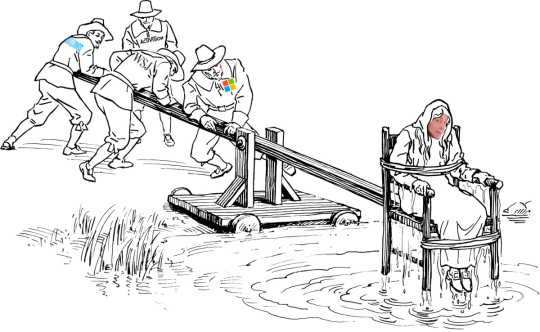
My god, they sure hate Lina Khan. This once-in-a-generation, groundbreaking, brilliant legal scholar and fighter for the public interest, the slayer of Reaganomics, has attracted more vitriol, mockery, and dismissal than any of her predecessors in living memory.
She sure must be doing something right, huh?
A quick refresher. In 2017, Khan — then a law student — published Amazon’s Antitrust Paradox in the Yale Law Journal. It was a brilliant, blistering analysis showing how the Reagan-era theory of antitrust (which celebrates monopolies as “efficient”) had failed on its own terms, using Amazon as Exhibit A of the ways in which post-Reagan antitrust had left Americans vulnerable to corporate abuse:
https://www.yalelawjournal.org/note/amazons-antitrust-paradox
The paper sent seismic shocks through both legal and economic circles, and goosed the neo-Brandeisian movement (sneeringly dismissed as “hipster antitrust”). This movement is a rebuke to Reaganomics, with its celebration of monopolies, trickle-down, offshoring, corporate dark money, revolving-door regulatory capture, and companies that are simultaneously too big to fail and too big to jail.
This movement has many proponents, of course — not just Khan — but Khan’s careful scholarship, combined with her encyclopedic knowledge of the long-dormant statutory powers that federal agencies had to make change, and a strategy for reviving those powers to protect Americans from corporate predators made her a powerful, inspirational figure.
When Joe Biden won the 2020 presidential election, he surprised everyone by appointing Khan to the FTC. It wasn’t just that she had such a radical vision — it was also that she lacked the usual corporate law experience that such an appointee would normally require (experience that would ensure that the FTC was helmed by people whose default view of the world is that it should be structured and regulated by powerful, wealthy people in corporate boardrooms).
Even more surprising was that Khan was made chair of the FTC, something that was only possible because a few Republican Senators broke with their party to support her candidacy:
https://www.senate.gov/legislative/LIS/roll_call_votes/vote1171/vote_117_1_00233.htm
These Republicans saw in Khan an ally in their fight against “woke” Big Tech. For these senators, the problem wasn’t that tech had got too big and powerful — it was that there were a few limited instances in which tech leaders failed to wield that power in the ways they preferred.
The Republican project is a matter of getting turkeys to vote for Christmas by doing a lot of culture war bullshit, cruelly abusing disfavored sexual and racial minorities. This wins support from low-information voters who’ll vote against their class interests and support more monopolies, more tax cuts for the rich, and more cuts to the services they rely on.
But while tech leaders are 100% committed to the project of permanent oligarchic takeover of every sphere of American life, they are less full-throated in their support for hateful, cruel discrimination against disfavored minorities (in this regard, tech leaders resemble the corporate wing of the Democrats, which is where we get the “Silicon Valley is a Democratic Party stronghold” narrative).
This failure to unquestioningly and unstintingly back culture war bullshit put tech leaders in the GOP’s crosshairs. Some GOP politicians actually believe in the culture war bullshit, and are grossly offended that tech is “woke.” Others are smart enough not to get high on their own supply, but worry that any tech obstruction in the bullshit culture wars will make it harder to get sufficient turkey votes for a big fat Christmas surprise.
Biden’s ceding of antitrust policy to the left wing of the party, combined with disaffected GOP senators viewing Khan as their enemy’s enemy, led to Khan’s historic appointment as FTC Chair. In that position, she was joined by a slate of Biden trustbusters, including Jonathan Kanter at the DoJ Antitrust Division, Tim Wu at the White House, and other important, skilled and principled fighters like Alvaro Bedoya (FTC), Rebecca Slaughter (FTC), Rohit Chopra (CFPB), and many others.
Crucially, these new appointees weren’t just principled, they were good at their jobs. In 2021, Tim Wu wrote an executive order for Biden that laid out 72 concrete ways in which the administration could act — with no further Congressional authorization — to blunt corporate power and insulate the American people from oligarchs’ abusive and extractive practices:
https://pluralistic.net/2021/08/13/post-bork-era/#manne-down
Since then, the antitrust arm of the Biden administration have been fuckin’ ninjas, Getting Shit Done in ways large and small, working — for the first time since Reagan — to protect Americans from predatory businesses:
https://pluralistic.net/2022/10/18/administrative-competence/#i-know-stuff
This is in marked contrast to the corporate Dems’ champions in the administration. People like Pete Buttigieg are heralded as competent technocrats, “realists” who are too principled to peddle hopium to the base, writing checks they can’t cash. All this is cover for a King Log performance, in which Buttigieg’s far-reaching regulatory authority sits unused on a shelf while a million Americans are stranded over Christmas and whole towns are endangered by greedy, reckless rail barons straight out of the Gilded Age:
https://pluralistic.net/2023/01/10/the-courage-to-govern/#whos-in-charge
The contrast between the Biden trustbusters and their counterparts from the corporate wing is stark. While the corporate wing insists that every pitch is outside of the zone, Khan and her allies are swinging for the stands. They’re trying to make life better for you and me, by declaring commercial surveillance to be an unfair business practice and thus illegal:
https://pluralistic.net/2022/08/12/regulatory-uncapture/#conscious-uncoupling
And by declaring noncompete “agreements” that shackle good workers to shitty jobs to be illegal:
https://pluralistic.net/2022/02/02/its-the-economy-stupid/#neofeudal
And naturally, this has really pissed off all the right people: America’s billionaires and their cheerleaders in the press, government, and the hive of scum and villainy that is the Big Law/thinktank industrial-complex.
Take the WSJ: since Khan took office, they have published 67 vicious editorials attacking her and her policies. Khan is living rent-free in Rupert Murdoch’s head. Not only that, he’s given her the presidential suite! You love to see it.
These attacks are worth reading, if only to see how flimsy and frivolous they are. One major subgenre is that Khan shouldn’t be bringing any action against Amazon, because her groundbreaking scholarship about the company means she has a conflict of interest. Holy moly is this a stupid thing to say. The idea that the chair of an expert agency should recuse herself because she is an expert is what the physicists call not even wrong.
But these attacks are even more laughable due to who they’re coming from: people who have the most outrageous conflicts of interest imaginable, and who were conspicuously silent for years as the FTC’s revolving door admitted the a bestiary of swamp-creatures so conflicted it’s a wonder they managed to dress themselves in the morning.
Writing in The American Prospect, David Dayen runs the numbers:
Since the late 1990s, 31 out of 41 top FTC officials worked directly for a company that has business before the agency, with 26 of them related to the technology industry.
https://prospect.org/economy/2023-06-23-attacks-lina-khans-ethics-reveal-projection/
Take Christine Wilson, a GOP-appointed FTC Commissioner who quit the agency in a huff because Khan wanted to do things for the American people, and not their self-appointed oligarchic princelings. Wilson wrote an angry break-up letter to Khan that the WSJ published, presaging their concierge service for Samuel Alito:
https://www.wsj.com/articles/why-im-resigning-from-the-ftc-commissioner-ftc-lina-khan-regulation-rule-violation-antitrust-339f115d
For Wilson to question Khan’s ethics took galactic-scale chutzpah. Wilson, after all, is a commissioner who took cash money from Bristol-Myers Squibb, then voted to approve their merger with Celgene:
https://www.documentcloud.org/documents/4365601-Wilson-Christine-Smith-final278.html
Or take Wilson’s GOP FTC predecessor Josh Wright, whose incestuous relationship with the companies he oversaw at the Commission are so intimate he’s practically got a Habsburg jaw. Wright went from Google to the US government and back again four times. He also lobbied the FTC on behalf of Qualcomm (a major donor to Wright’s employer, George Mason’s Antonin Scalia Law School) after working “personally and substantially” while serving at the FTC.
George Mason’s Scalia center practically owns the revolving door, counting fourteen FTC officials among its affliates:
https://campaignforaccountability.org/ttp-investigation-big-techs-backdoor-to-the-ftc/
Since the 1990s, 31 out of 41 top FTC officials — both GOP appointed and appointees backed by corporate Dems — “worked directly for a company that has business before the agency”:
https://www.citizen.org/article/ftc-big-tech-revolving-door-problem-report/
The majority of FTC and DoJ antitrust lawyers who served between 2014–21 left government service and went straight to work for a Big Law firm, serving the companies they’d regulated just a few months before:
https://therevolvingdoorproject.org/wp-content/uploads/2022/06/The-Revolving-Door-In-Federal-Antitrust-Enforcement.pdf
Take Deborah Feinstein, formerly the head of the FTC’s Bureau of Competition, now a partner at Arnold & Porter, where she’s represented General Electric, NBCUniversal, Unilever, and Pepsi and a whole medicine chest’s worth of pharma giants before her former subordinates at the FTC. Michael Moiseyev who was assistant manager of FTC Competition is now in charge of mergers at Weil Gotshal & Manges, working for Microsoft, Meta, and Eli Lilly.
There’s a whole bunch more, but Dayen reserves special notice for Andrew Smith, Trump’s FTC Consumer Protection boss. Before he was put on the public payroll, Smith represented 120 clients that had business before the Commission, including “nearly every major bank in America, drug industry lobbyist PhRMA, Uber, Equifax, Amazon, Facebook, Verizon, and a variety of payday lenders”:
https://www.citizen.org/sites/default/files/andrew_smith_foia_appeal_response_11_30.pdf
Before Khan, in other words, the FTC was a “conflict-of-interest assembly line, moving through corporate lawyers and industry hangers-on without resistance for decades.”
Khan is the first FTC head with no conflicts. This leaves her opponents in the sweaty, desperate position of inventing conflicts out of thin air.
For these corporate lickspittles, Khan’s “conflict” is that she has a point of view. Specifically, she thinks that the FTC should do its job.
This makes grifters like Jim Jordan furious. Yesterday, Jordan grilled Khan in a hearing where he accused her of violating an ethics official’s advice that she should recuse herself from Big Tech cases. This is a talking point that was created and promoted by Bloomberg:
https://www.bloomberg.com/news/articles/2023-06-16/ftc-rejected-ethics-advice-for-khan-recusal-on-meta-case
That ethics official, Lorielle Pankey, did not, in fact, make this recommendation. It’s simply untrue (she did say that Khan presiding over cases that she has made public statements about could be used as ammo against her, but did not say that it violated any ethical standard).
But there’s more to this story. Pankey herself has a gigantic conflict of interest in this case, including a stock portfolio with $15,001 and $50,000 in Meta stock (Meta is another company that has whined in print and in its briefs that it is a poor defenseless lamb being picked on by big, mean ole Lina Khan):
https://www.wsj.com/articles/ethics-official-owned-meta-stock-while-recommending-ftc-chair-recuse-herself-from-meta-case-8582a83b
Jordan called his hearing on the back of this fake scandal, and then proceeded to show his whole damned ass, even as his GOP colleagues got into a substantive and even informative dialog with Khan:
https://prospect.org/power/2023-07-14-jim-jordan-misfires-attacks-lina-khan/
Mostly what came out of that hearing was news about how Khan is doing her job, working on behalf of the American people. For example, she confirmed that she’s investigating OpenAI for nonconsensually harvesting a mountain of Americans’ personal information:
https://www.ft.com/content/8ce04d67-069b-4c9d-91bf-11649f5adc74
Other Republicans, including confirmed swamp creatures like Matt Gaetz, ended up agreeing with Khan that Amazon Ring is a privacy dumpster-fire. Nobodies like Rep TomM assie gave Khan an opening to discuss how her agency is protecting mom-and-pop grocers from giant, price-gouging, greedflation-drunk national chains. Jeff Van Drew gave her a chance to talk about the FTC’s war on robocalls. Lance Gooden let her talk about her fight against horse doping.
But Khan’s opponents did manage to repeat a lot of the smears against her, and not just the bogus conflict-of-interest story. They also accused her of being 0–4 in her actions to block mergers, ignoring the huge number of mergers that have been called off or not initiated because M&A professionals now understand they can no longer expect these mergers to be waved through. Indeed, just last night I spoke with a friend who owns a medium-sized tech company that Meta tried to buy out, only to withdraw from the deal because their lawyers told them it would get challenged at the FTC, with an uncertain outcome.
These talking points got picked up by people commenting on Judge Jacqueline Scott Corley’s ruling against the FTC in the Microsoft-Activision merger. The FTC was seeking an injunction against the merger, and Corley turned them down flat. The ruling was objectively very bad. Start with the fact that Corley’s son is a Microsoft employee who stands reap massive gains in his stock options if the merger goes through.
But beyond this (real, non-imaginary, not manufactured conflict of interest), Corley’s judgment and her remarks in court were inexcusably bad, as Matt Stoller writes:
https://www.thebignewsletter.com/p/judge-rules-for-microsoft-mergers
In her ruling, Corley explained that she didn’t think Microsoft would abuse the market dominance they’d gain by merging their giant videogame platform and studio with one of its largest competitors. Why not? Because Microsoft’s execs pinky-swore that they wouldn’t abuse that power.
Corely’s deference to Microsoft’s corporate priorities goes deeper than trusting its execs, though. In denying the FTC’s motion, she stated that it would be unfair to put the merger on hold in order to have a full investigation into its competition implications because Microsoft and Activision had set a deadline of July 18 to conclude things, and Microsoft would have to pay a penalty if that deadline passed.
This is surreal: a judge ruled that a corporation’s radical, massive merger shouldn’t be subject to full investigation because that corporation itself set an arbitrary deadline to conclude the deal before such an investigation could be concluded. That’s pretty convenient for future mega-mergers — just set a short deadline and Judge Corely will tell regulators that the merger can’t be investigated because the deadline is looming.
And this is all about the future. As Stoller writes, Microsoft isn’t exactly subtle about why it wants this merger. Its own execs said that the reason they were spending “dump trucks” of money buying games studios was to “spend Sony out of business.”
Now, maybe you hate Sony. Maybe you hate Activision. There’s plenty of good reason to hate both — they’re run by creeps who do shitty things to gamers and to their employees. But if you think that Microsoft will be better once it eliminates its competition, then you have the attention span of a goldfish on Adderall.
Microsoft made exactly the same promises it made on Activision when it bought out another games studio, Zenimax — and it broke every one of those promises.
Microsoft has a long, long, long history of being a brutal, abusive monopolist. It is a convicted monopolist. And its bad conduct didn’t end with the browser wars. You remember how the lockdown turned all our homes into rent-free branch offices for our employers? Microsoft seized on that moment to offer our bosses keystroke-and-click level surveillance of our use of our own computers in our own homes, via its Office365 bossware product:
https://pluralistic.net/2020/11/25/the-peoples-amazon/#clippys-revenge
If you think a company that gave your boss a tool to spy on their employees and rank them by “productivity” as a prelude to firing them or cutting their pay is going to treat gamers or game makers well once they have “spent the competition out of business,” you’re a credulous sucker and you are gonna be so disappointed.
The enshittification play is obvious: use investor cash to make things temporarily nice for customers and suppliers, lock both of them in — in this case, it’s with a subscription-based service similar to Netflix’s — and then claw all that value back until all that’s left is a big pile of shit.
The Microsoft case is about the future. Judge Corely doesn’t take the future seriously: as she said during the trial, “All of this is for a shooter videogame.” The reason Corely greenlit this merger isn’t because it won’t be harmful — it’s because she doesn’t think those harms matter.
But it does, and not just because games are an art form that generate billions of dollars, employ a vast workforce, and bring pleasure to millions. It also matters because this is yet another one of the Reaganomic precedents that tacitly endorses monopolies as efficient forces for good. As Stoller writes, Corley’s ruling means that “deal bankers are sharpening pencils and saying ‘Great, the government lost! We can get mergers through everywhere else.’ Basically, if you like your high medical prices, you should be cheering on Microsoft’s win today.”
Ronald Reagan’s antitrust has colonized our brains so thoroughly that commentators were surprised when, immediately after the ruling, the FTC filed an appeal. Don’t they know they’ve lost? the commentators said:
https://gizmodo.com/ftc-files-appeal-of-microsoft-activision-deal-ruling-1850640159
They echoed the smug words of insufferable Activision boss Mike Ybarra: “Your tax dollars at work.”
https://twitter.com/Qwik/status/1679277251337277440
But of course Khan is appealing. The only reason that’s surprising is that Khan is working for us, the American people, not the giant corporations the FTC is supposed to be defending us from. Sure, I get that this is a major change! But she needs our backing, not our cheap cynicism.
The business lobby and their pathetic Renfields have hoarded all the nice things and they don’t want us to have any. Khan and her trustbuster colleagues want the opposite. There is no measure so small that the corporate world won’t have a conniption over it. Take click to cancel, the FTC’s perfectly reasonable proposal that if you sign up for a recurring payment subscription with a single click, you should be able to cancel it with a single click.
The tooth-gnashing and garment-rending and scenery-chewing over this is wild. America’s biggest companies have wheeled out their biggest guns, claiming that if they make it too easy to unsubscribe, they will lose money. In other words, they are currently making money not because people want their products, but because it’s too hard to stop paying for them!
https://www.theregister.com/2023/07/12/ftc_cancel_subscriptions/
We shouldn’t have to tolerate this sleaze. And if we back Khan and her team, they’ll protect us from these scams. Don’t let them convince you to give up hope. This is the start of the fight, not the end. We’re trying to reverse 40 years’ worth of Reagonmics here. It won’t happen overnight. There will be setbacks. But keep your eyes on the prize — this is the most exciting moment for countering corporate power and giving it back to the people in my lifetime. We owe it to ourselves, our kids and our planet to fight one.

If you’d like an essay-formatted version of this post to read or share, here’s a link to it on pluralistic.net, my surveillance-free, ad-free, tracker-free blog:
https://pluralistic.net/2023/07/14/making-good-trouble/#the-peoples-champion

[Image ID: A line drawing of pilgrims ducking a witch tied to a ducking stool. The pilgrims' clothes have been emblazoned with the logos for the WSJ, Microsoft, Activision and Blizzard. The witch's face has been replaced with that of FTC chair Lina M Khan.]
#pluralistic#amazon's antitrust paradox#lina khan#business lobby#lina m khan#ftc#federal trade commission#david dayen#microsoft#activision#blizzard#wsj#wall street journal#reaganomics#trustbusting#antitrust#mergers#merger to monopoly#gaming#xbox#matt stoller#the american prospect#jim jordan#click to cancel#robert bork#Judge Jacqueline Scott Corley#microsoft activision#fuckin' ninjas
6K notes
·
View notes
Text








[Margot’s] superpower and the thing that makes her a once-in-a-generation talent is that she can do everything.
#margot robbie#mrobbieedit#barbie#filmgifs#movieedit#userbbelcher#chewieblog#dcmultiverse#ladiesofcinema#tusercourtney#usermandie#the suicide squad#babylon#i tonya#bombshell#once upon a time in hollywood#the wolf of wall street#mary queen of scots#movies#mine#*#been binging her filmography lately and her range is just crazy#she’s always been one of the most versatile actresses imo but even moreso now after barbie
6K notes
·
View notes
Text



Margot Robbie wearing ALAÏA – The Wolf of Wall Street (2013)
886 notes
·
View notes
Text


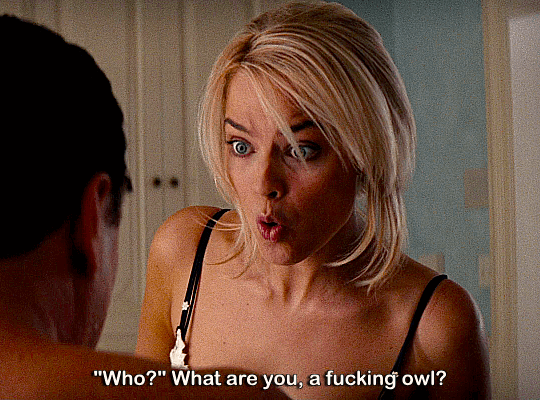
THE WOLF OF WALL STREET (2013) dir. Martin Scorsese
#the wolf of wall street#thewolfofwallstreetedit#filmedit#filmgifs#moviegifs#cinemapix#dailyflicks#chewieblog#userbbelcher#userfilm#userstream#useroptional#useranimusvox#useraurore#usermandie#userrobin#userallisyn#usersavana#*
2K notes
·
View notes
Text

I'm alive
#had to crop out the flogger on my wall yall have to pay to see that#i think a meth lab just exploded down the street#i really dont think i pass but at least im comfy
621 notes
·
View notes
Text
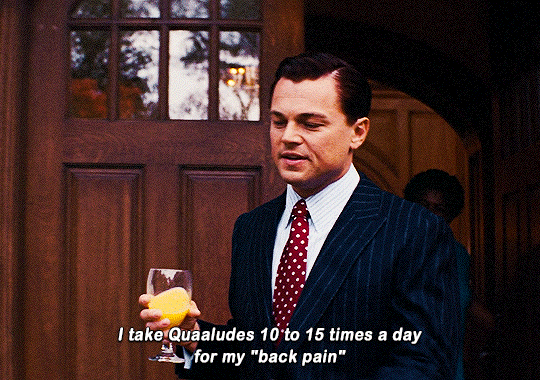

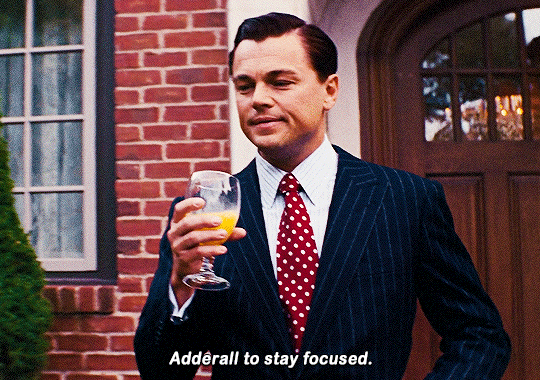
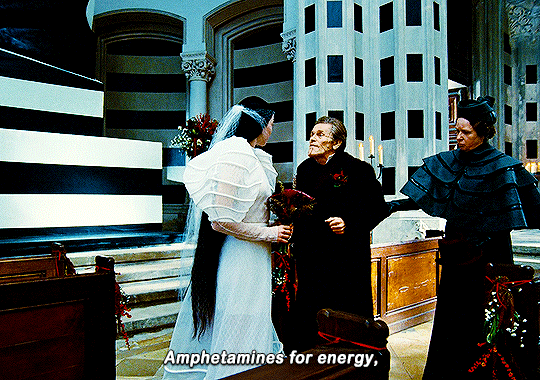
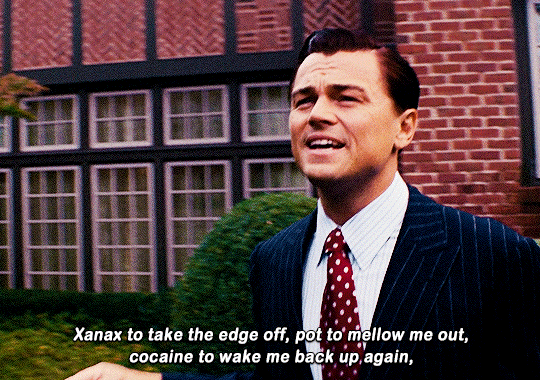
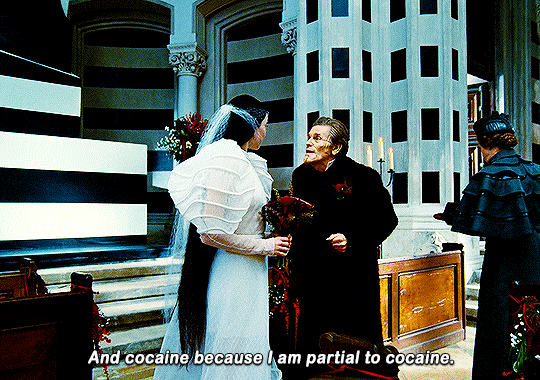
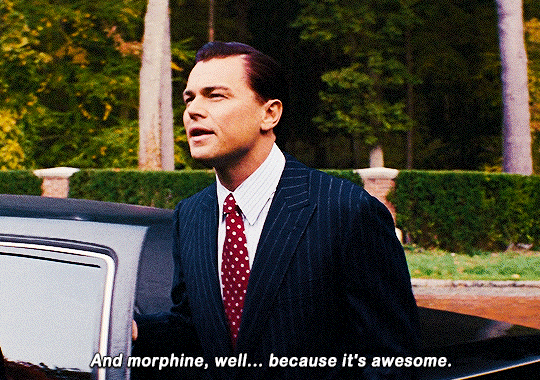
THE WOLF OF WALL STREET (2013) POOR THINGS (2023) ↪︎ @lgbtqcreators creator bingo - parallels
#poor things#the wolf of wall street#filmedit#moviegifs#movieedit#filmgifs#userparallels#useraurore#usercande#tuserlou#usertj#usercleo#usersavana#cinematic parallels#gifs*#creator bingo: march 23#drugs tw
1K notes
·
View notes
Video
youtube
How Wall Street Priced You Out of a Home
Rent is skyrocketing and home buying is out of reach for millions. One big reason why? Wall Street.
Hedge funds and private equity firms have been buying up hundreds of thousands of homes that would otherwise be purchased by people. Wall Street’s appetite for housing ramped up after the 2008 financial crisis. As you’ll recall, the Street’s excessive greed created a housing bubble that burst. Millions of people lost their homes to foreclosure.
Did the Street learn a lesson? Of course not. It got bailed out. Then it began picking off the scraps of the housing market it had just destroyed, gobbling up foreclosed homes at fire-sale prices — which it then sold or rented for big profits.
Investor purchases hit their peak in 2022, accounting for around 28% of all home sales in America.
Home buyers frequently reported being outbid by cash offers made by investors. So called “iBuyers” used algorithms to instantly buy homes before offers could even be made by actual humans.
If the present trend continues, by 2030, Wall Street investors may control 40% of U.S. single-family rental homes.
Partly as a result, homeownership — a cornerstone of generational wealth and a big part of the American dream — is increasingly out of reach for a large number of Americans, especially young people.
Now, Wall Street’s feasting has slowed recently due to rising home prices — even the wolves of Wall Street are falling victim to sticker shock. But that hasn’t stopped them from specifically targeting more modestly priced homes — buying up a record share of the country’s most affordable homes at the end of 2023.
They’ve also been most active in bigger cities, particularly in the Sun Belt, which has become an increasingly expensive place to live. And they’re pointedly going after neighborhoods that are home to communities of color.
For example, in one diverse neighborhood in Charlotte, North Carolina, Wall Street-backed investors bought half of the homes that sold in 2021 and 2022. On a single block, investors bought every house but one, and turned them into rentals.
Folks, it’s a vicious cycle: First you’re outbid by investors, then you may be stuck renting from them at excessive prices that leave you with even less money to put up for a new home. Rinse. Repeat.
Now I want to be clear: This is just one part of the problem with housing in America. The lack of supply is considered the biggest reason why home prices and rents have soared — and are outpacing recent wage gains. But Wall Street sinking its teeth into whatever is left on the market is making the supply problem even worse.
So what can we do about this? Start by getting Wall Street out of our homes.
Democrats have introduced a bill in both houses of Congress to ban hedge funds and private equity firms from buying or owning single-family homes.
If signed into law, this could increase the supply of homes available to individual buyers — thereby making housing more affordable.
President Biden has also made it a priority to tackle the housing crisis, proposing billions in funding to increase the supply of homes and tax credits to help actual people buy them.
Now I have no delusions that any of this will be easy to get done. But these plans provide a roadmap of where the country could head — under the right leadership.
So many Americans I meet these days are cynical about the country. I understand their cynicism. But cynicism can be a self-fulfilling prophecy if it means giving up the fight.
The captains of American industry and Wall Street would like nothing better than for the rest of us to give up that fight, so they can take it all.
I say we keep fighting.
697 notes
·
View notes
Text



Now Available to Own: Tatiana Suarez's "Uvivera."
Now available to own from Hyper Editions: Acclaimed artist Tatiana Suarez's limited edition fine art print, "Uvivera."
Add it to your art collection today with Hyper Editions.
#art#artwork#prints#fine art#miami#miami artist#wynwood walls#street art#murals#graffiti#illustration#painting#artists on tumblr#contemporary art#art on tumblr#oc artist#drawing
410 notes
·
View notes
Text

It's not profitable in Israel only




#yemen#jerusalem#tel aviv#current events#palestine#free palestine#gaza#free gaza#news on gaza#palestine news#news update#war news#war on gaza#military industrial complex#wall street#imperialism#war for profit#genocide
2K notes
·
View notes
